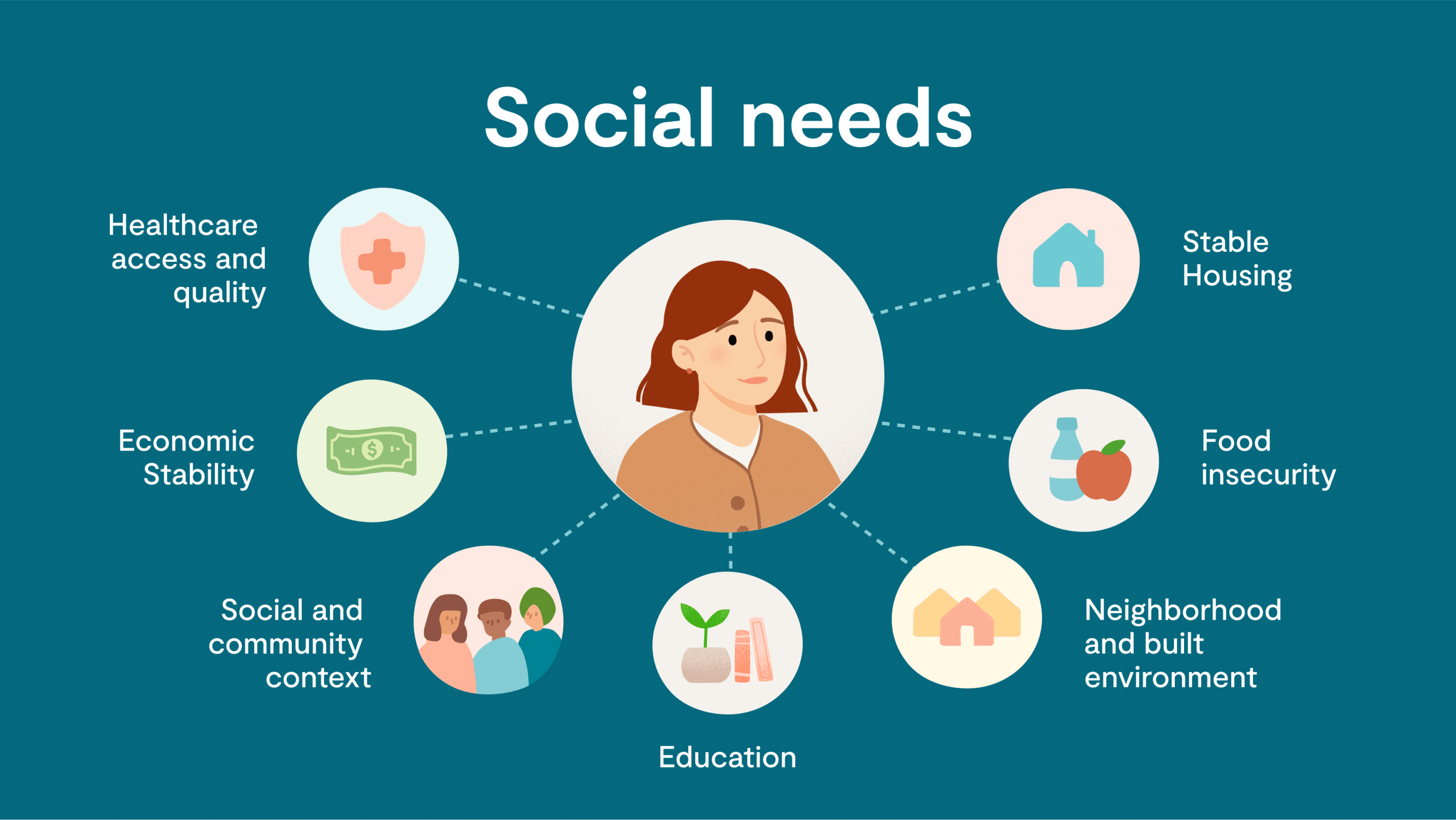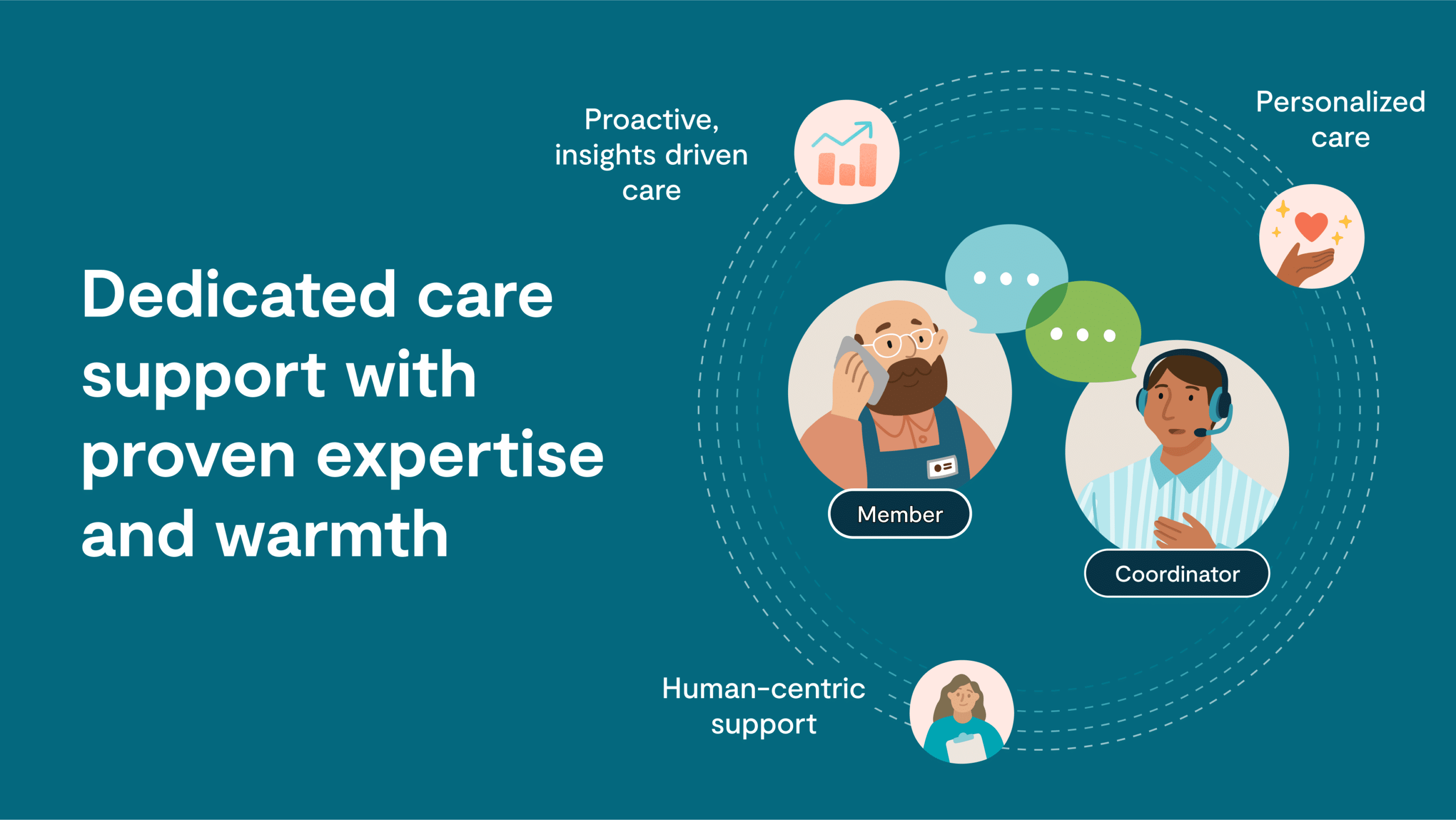Equity in Mental Health Through Lyra Social Care
July 18, 2024
“Will I be able to feed my family this week?”
“How am I going to get to work without reliable transportation?”
"Where will I sleep tonight? Can my boss tell that I slept in my car?"
“I feel so lonely and disconnected from my community.”
Sixty-five percent of full-time employees at large U.S. employers have experienced at least one unmet social need. When an employee doesn’t have access to social needs like food, housing, and care for dependents, it has a direct impact on their health, including mental health.

As an HR and benefits leader, we know you're concerned about employees who are struggling to meet their basic needs. Employment can support health, but unmet social needs don’t disappear—they follow employees to work, creating an invisible, overwhelming burden. This can result in missed work, lagging productivity, and poor performance.
Traditional methods of addressing these unmet social needs often require vulnerable individuals to seek out resources on their own. At Lyra, we believe in shifting to a proactive, human-centric model backed by insights.
That’s why today, we are proud to launch a new standard in equitable mental health care with Lyra Social Care.
We’ve pioneered a new, equitable approach to supporting employees’ unmet social needs and improving their social determinants of health (SDOH). Through proactive outreach, our Social Care offering directly connects members with personalized resources to help them thrive at home and at work.

A new approach to addressing unmet needs that impact mental well-being
Supporting whole-person health is crucial, as employees can face challenges meeting their social needs. Businesses are well-suited to provide proactive support, benefiting both employees and the organization’s bottom line.
Our new Social Care offering is driven by specially trained Resource Coordinators who proactively connect members with the social support they need to thrive—whether it’s through Lyra, another employer-sponsored benefit, or available community resources.
Here’s how Lyra Social Care works:
- Members are screened through a mental health assessment for SDOH-related needs like social connection, physical health and activity, finances and work, and their environment.
- Based on the results, Resource Coordinators reach out to vulnerable members and offer them a link to schedule a personalized call.
- Members speak to our compassionate and trained Resource Coordinators to identify needs.
- Members receive a personalized care plan, including referrals and resources to help them on their well-being journey.
- The Resource Coordinator is available for any follow-up questions or discussions.
Lyra Social Care is powered by proactive, compassionate, and insight-driven outreach to help people like:

Jane, a single mom who doesn’t have enough money for food. Unable to feed her family, she’s struggling with anxiety and depression. Her Resource Coordinator identifies local food banks and links to eligible government assistance programs (SNAP, WIC, TANF), and creates a personalized care plan that includes a call with a Lyra therapist.

Tony, a retail worker who was hospitalized due to chronic diabetes and feels helpless as he navigates his illness alone. Tony’s Resource Coordinator arranges a local diabetes-friendly food service, identifies a chronic illness support group, and schedules a session with a therapist who specializes in chronic illness.
Compassionate, human-centric care
Our Resource Coordinators stay in touch with the member from start to finish, including assistance with completing applications or connecting to local resources. They also offer members compassionate support on topics including financial worries, food or housing insecurity, caregiving needs, and social inclusion. And, if resource needs arise while a member is working with a mental health provider, Lyra providers can directly communicate with the Resource Coordinator to ensure those needs are addressed.
Proactive, insight-driven care
Our commitment to insight-driven care extends to Social Care reporting. Employers receive data on member utilization to support workplace well-being and inform employee programs. Businesses can access a range of anonymized data, from the unique number of cases and type of support requests to the employee’s engagement with community-based resources.
Lyra members thrive with dedicated resource support
With our focus on whole-person care, we ensure that members receive the services and support they need. This approach enables us to more effectively address people’s diverse needs, leading to improved care outcomes and reduced mental health inequities.
Our commitment to a human-centric approach is fundamental to our mission of advancing health equity and delivering high-quality care. We’re proud to pioneer this new standard in equitable mental health care and help our members thrive.
Learn more about Social Care
Author
Monika Rodriguez
VP of Client Services at Lyra Health
Monika is the vice president of our Lyra Care Navigation team, which works to deliver best in class service with the highest clinical standards. She has over 20+ years experience in servicing including supporting global markets. She studied International business and has managed teams in India, Philippines, Mexico, Spain, Brazil, and Japan. Monika has worked for many best in class servicing companies from GE to American Express and prior to Lyra took on a role working at startup Cedar creating a product to make health care billing more accessible and understandable. Monika has a passion for ensuring that underserved communities have access to all types of healthcare and resources as well as support on locating & utilizing those resources.
Explore additional blogs

Lyra news
Introducing Lyra’s Center of Excellence for Neurodiversity

Lyra news
Announcing Lyra’s 2025 Workforce Mental Health Award Winners

Lyra news